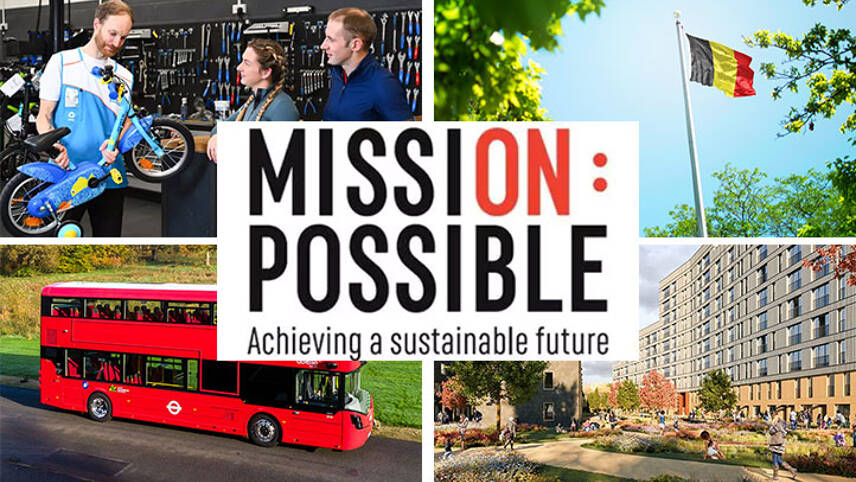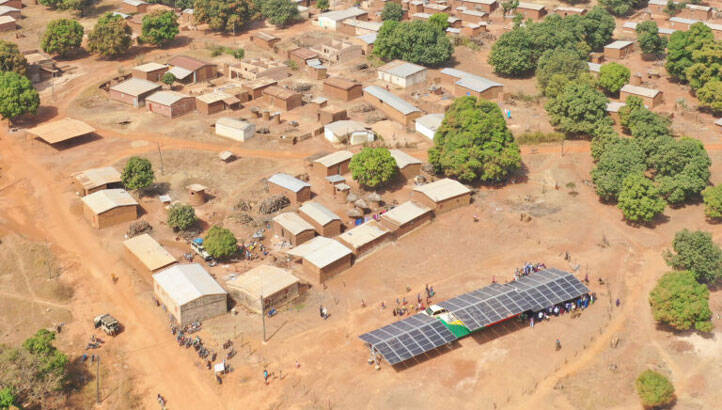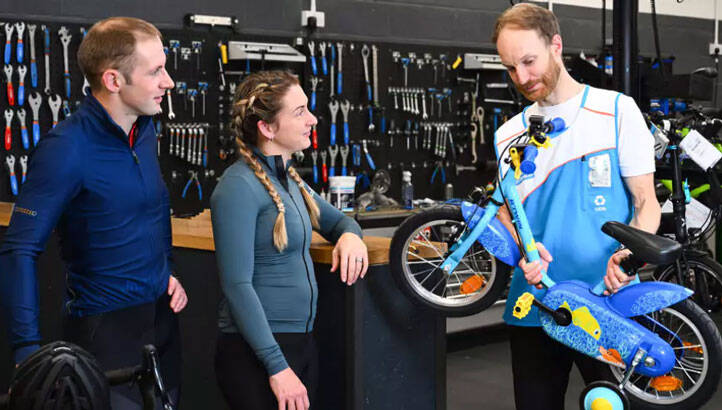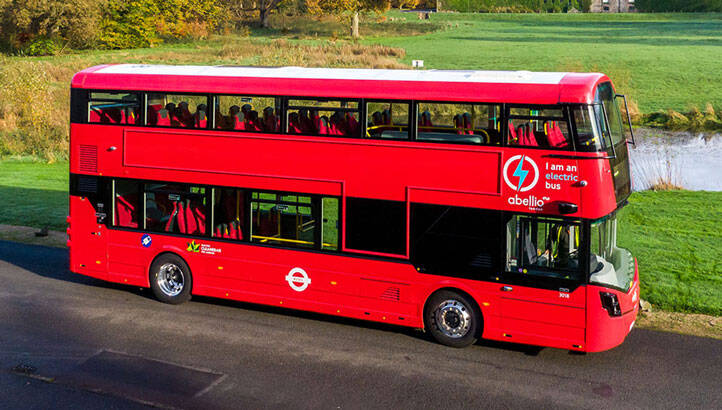This premium content is exclusive to edie Members.
To find out more about edie Membership, please click below.
If you are an existing member, login here

Published every week, this series charts how businesses and sustainability professionals are working to achieve their ‘Mission Possible’ across the campaign’s five key pillars – energy, resources, infrastructure, mobility and sustainability leadership.
Across the UK and across the world, leading businesses, cities, states and regions are turning environmental ambitions into action. Here, we round up five positive sustainability stories from this week.
ENERGY: Major community renewables drive launched for sub-Saharan Africa
The world added 50% more renewable energy generation capacity in 2023 than in 2022, according to the International Energy Agency (IEA). But progress has been largely concentrated in a few wealthy nations, with the Agency calling for a sixfold increase in clean energy investment in the Global South by 2030.
This week, RePower revealed that it is set to deliver a four-year programme in Sub-Saharan Africa, bringing solar microgrids to off-grid communities. The microgrids will feature solar powers, battery energy storage systems and digital management tools. Communities will also be supplied with biomass combined heat and power units to ease the transition away from diesel and other dirty heating and cooking fuels.
The project intends to shave around two-thirds off of electricity costs for communities. It is backed with €12.7m, the majority of which is coming from the European Union.
Senior project leader Moses Mengu said: “RePower will empower African off-grid communities to power their own development through the productive use of energy, moving beyond traditional electrification to drive true economic growth”.
RESOURCES: Decathlon cements circular economy vision
The world’s largest sporting goods retailer, Decathlon, this week signed up to the European Commission’s sustainable consumption pledge. Launched in early 2021, the pledge enables companies to voluntarily cut their emissions and encourage reductions in product and material consumption beyond their legal obligations.
Under the pledge, businesses commit to promoting new circular business models including second-hand product sales, rentals and repairs. Decathlon has pledged to launch three such offerings within two years.
These actions, the pledge notes, can help firms in sectors including retail to slash emissions. The pledge stipulates that businesses should support a net-zero goal for 2050 or sooner with interim emissions cuts for 2026 and 2030.
Decathlon’s chief sustainability officer Anna Turrell said: The Sustainable Consumption Pledge represents our renewed commitment to changing the way we do business.
“By decarbonising our activity and developing a business model that promotes a circular economy, we can reduce the impact we have on the environment and lead the change in the industry to become a beacon of light for a more sustainable future.”
MOBILITY: Arriva orders 87 new electric buses for London fleet
The Society of Motor Manufacturers and Traders (SMMT) recently confirmed a 44.6% increase in new bus and coach registrations, year-on-year, for 2023. A record 45.1% of these registrations were accounted for by zero-tailpipe-emissions models as bus operators seek to align with urban clean air levies and net-zero transition plans.
Continuing this trend, Arriva in London has ordered 87 new pure-electric buses – 11 of which are single-deckers and 76 of which are double-deckers – from Wrightbus. They are due to be integrated into bus routes around the capital from July.
London notably expanded its Ultra-Low Emission Zone (ULEZ) last year. City Hall is also forging ahead with plans to reach net-zero operational emissions from London’s public services including the transport network by 2030.
WrightBus chief executive Jean-Marc Gales said: “This is another significant deal for Wrightbus and we are delighted to once again be partnering with Arriva in the drive to zero-emission public transport.
“Arriva, like us, is consistently on the forefront of new and exciting technology, and zero-emission travel.”
THE BUILT ENVIRONMENT: First social homes in Leeds’ new ‘Climate Innovation District’ completed
Property developer CITU and social housing provider Leeds Community Homes have confirmed the completion of the first 16 apartments at Aire Lofts, a new development within the city-region’s new ‘Climate Innovation District’.
The apartments, now ready to be moved into, have been built in line with the UK Green Building Council’s advice on developing zero-carbon homes. The apartments all have electric heating and cooking, south-facing windows and passive lighting and cooling. Citu touts zero energy bills for two years for its tenants at Aire Lofts due to these features plus high energy efficiency.
The neighbourhood also features an array of shared outdoor spaces featuring trees, grasses and flowering plants.
CITU’s managing director Jonathan Wilson said: “We focus on making sustainable living, and inclusive design completely accessible we will of course do the right thing for the right reasons this approach has been rooted in the Climate Innovation District from when the very first home was built. Ultimately, it is about creating a beautiful and sustainable future for all of our residents, irrespective of the journey that brought them here.”
SUSTAINABILITY LEADERSHIP: Belgium becomes first EU nation to criminalise ecocide
We often note examples of businesses taking a stand or leading the pack in this part of this feature, such as those that joined London’s climate queue last September or those gaining the highest B-Corp scores in their sector.
This week, however, we’d be remiss not to mention an instance of green policy leadership from Belgium. The nation’s federal parliament voted on Thursday (22 February) to introduce tougher punishments for its citizens found to be causing at-scale ecological damage, also known as ecocide.
Those causing severe environmental harm domestically face up to 20 years in prison. For businesses, fines have been increased to a maximum of €1.6m. Punishments could be levied for occurrences such as oil spills, plastic pellet spills or the mismanagement of hazardous wastes.
The change in Belgium comes after the EU voted last November to incorporate a new ecocide offense into its revised environmental crimes directive.
Stop Ecocide International’s director Patricia Willocq said: “As Belgium holds the presidency of the European Union, this directive should encourage the regions to play their part in the area of their competence.
“Belgium is now at the forefront of a truly global conversation around criminalising the most severe harms to nature and must continue to advocate for the recognition of ecocide at the International Criminal Court, alongside genocide.”







Please login or Register to leave a comment.